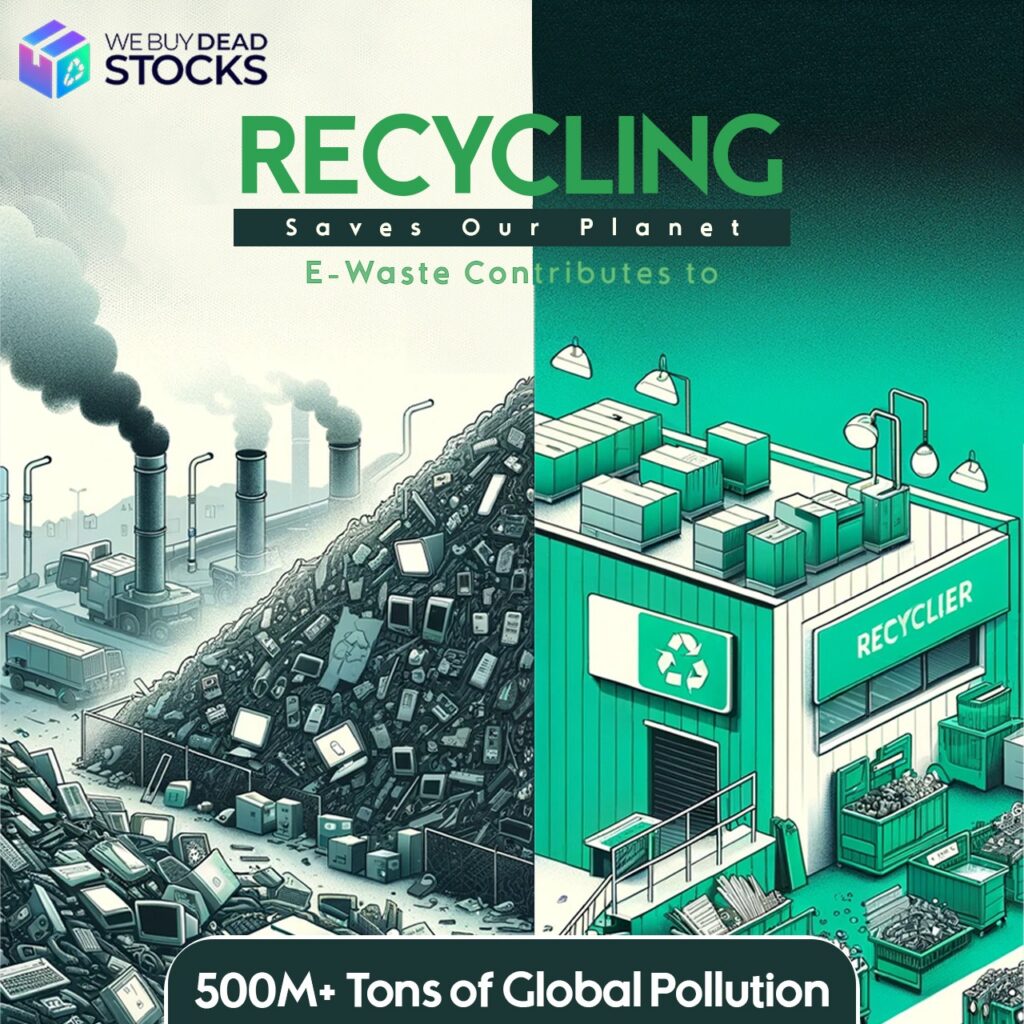The world today faces an escalating environmental crisis, and one of the leading contributors to this problem is e-waste. With over 500 million tons of global pollution stemming from discarded electronics and improper waste management, recycling emerges as a critical solution. By adopting sustainable practices, we can significantly mitigate the adverse impacts of e-waste while fostering a healthier, cleaner planet.
Understanding E-Waste and Its Impact
E-waste, or electronic waste, refers to discarded electronic devices such as computers, smartphones, televisions, and other gadgets. As technology evolves at a rapid pace, the volume of e-waste continues to grow exponentially. Improper disposal of e-waste leads to hazardous materials, such as lead and mercury, leaching into the environment, contaminating soil, water, and air.
The statistics are alarming—e-waste accounts for a substantial portion of global pollution. However, waste recovery provides a pathway to address this issue effectively. By recovering valuable materials like metals and plastics from electronic devices, this process not only reduces waste but also minimizes the need for resource extraction.
How Recycling Saves Our Planet
Recycling is more than just a waste management practice; it’s a commitment to environmental sustainability. Here’s how it benefits the planet:
- Reduces Pollution: Reprocessing prevents harmful substances in e-waste from polluting the environment. Proper waste management ensures that toxic materials are safely handled and disposed of.
- Conserves Resources: By recovering and reusing materials from e-waste, it reduces the need for mining and manufacturing raw materials. This conserves natural resources and lowers energy consumption.
- Cuts Greenhouse Gas Emissions: Manufacturing new products from raw materials requires significant energy, often derived from fossil fuels. Reuse and repurposing reduce energy usage and help combat climate change by cutting greenhouse gas emissions.
The Role of Businesses in Promoting Recycling
Companies like “We Buy Dead Stocks” play a pivotal role in advancing waste management efforts. By purchasing unused or surplus electronics, these businesses prevent valuable materials from ending up in landfills. Instead, they facilitate the recovery and repurposing of electronic devices, contributing to a circular economy.
The circular economy emphasizes designing waste out of the system by keeping materials in use for as long as possible. Businesses that prioritize sustainability not only help the environment but also appeal to eco-conscious consumers who value resource conservation.
Small Actions, Big Impact
While governments and corporations have a significant role to play, individual actions are equally crucial. Here’s how you can contribute to the movement:
- Dispose of E-Waste Responsibly: Take old electronics to certified recovery centers instead of throwing them in the trash.
- Choose Recyclable Products: Opt for products made from reused materials or those that can be easily processed.
- Educate Others: Spread awareness about the importance of proper waste management and the dangers of e-waste.
Each action, no matter how small, contributes to a collective effort in reducing global pollution and ensuring a sustainable future.
Overcoming Challenges in Recycling
Despite its benefits, recycling faces challenges, particularly in the management of e-waste. Many countries lack proper infrastructure for recovery, and public awareness remains low. Addressing these challenges requires a multi-pronged approach:
- Invest in Infrastructure: Governments and businesses must invest in facilities capable of handling e-waste safely and efficiently.
- Raise Awareness: Educational campaigns can inform the public about the environmental and economic benefits of waste recovery.
- Enforce Regulations: Policies that mandate proper disposal and reuse of e-waste can drive positive change.
Looking Ahead
The journey toward a sustainable planet hinges on our ability to embrace waste recovery as a way of life. By transforming how we view waste and adopting practices that prioritize resource recovery, we can reduce global pollution and protect the environment for future generations.
Recycling is not just a solution to the e-waste problem—it’s a testament to humanity’s commitment to sustainability. Together, through conscious efforts and collective action, we can pave the way for a cleaner, greener world.
Conclusion
Recycling is the cornerstone of a sustainable future. With over 500 million tons of pollution attributed to e-waste, the need for recovery processes has never been greater. By supporting businesses like “We Buy Dead Stocks” and taking individual responsibility for proper waste disposal, we can combat environmental degradation and ensure a healthier planet. Let’s take action today to build a brighter tomorrow through sustainability.





